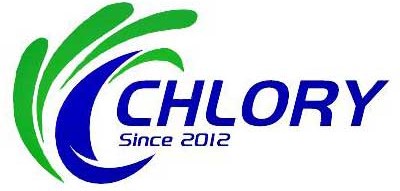In recent years, with the continuous improvement of livestock breeding standards, my country's livestock farming industry has entered a period of rapid development. However, due to the intensive scale and high-density breeding of livestock farms, the pathogens present in these farms have become increasingly complex. These pathogens can cause epidemics under the right conditions. Once an infectious disease breaks out, it's often too late to take action, resulting in severe economic losses.
Disinfection is a crucial component of comprehensive disease prevention. Through scientific, rational, and effective disinfection, we can cut off the transmission pathways of infectious diseases and reduce the number of pathogens in farms and poultry houses, thereby reducing or even preventing the occurrence of infectious diseases to a certain extent.
Therefore, how to efficiently, safely, and pollution-freely purify and disinfect the livestock and poultry breeding environment to reduce the incidence of epidemics has become both a challenge and a key to healthy modern livestock and poultry farming.
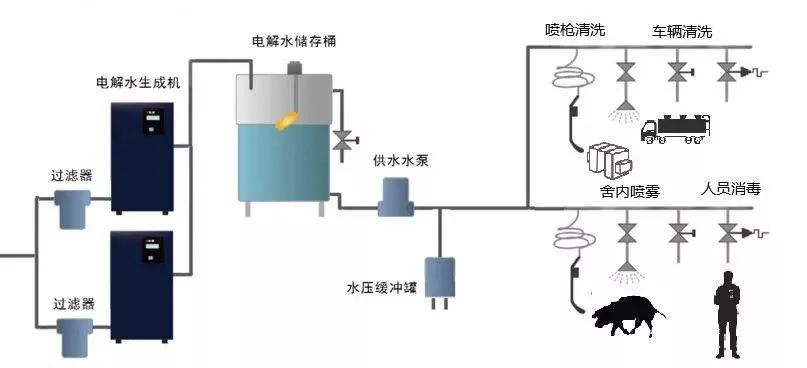
Hypochlorous acid water supply system for livestock and poultry farms
Hypochlorous acid water is a new technology that has emerged in recent years. Due to its high efficiency, safety, broad spectrum, pollution-free, residue-free nature, and no negative impact on the environment or animal health, it has been gradually applied to the livestock and poultry industry for disinfection of vehicles, personnel, livestock and poultry houses, and tool cleaning.
Vehicle Disinfection
Before entering a livestock farm, vehicles carry a large number of bacteria and viruses. If vehicles enter a farm or production workshop without undergoing strict disinfection, they can spread diseases, leading to livestock illness or food contamination, resulting in serious economic losses for the enterprise. Therefore, vehicle disinfection plays a crucial role in the construction of disinfection access control systems at farms.
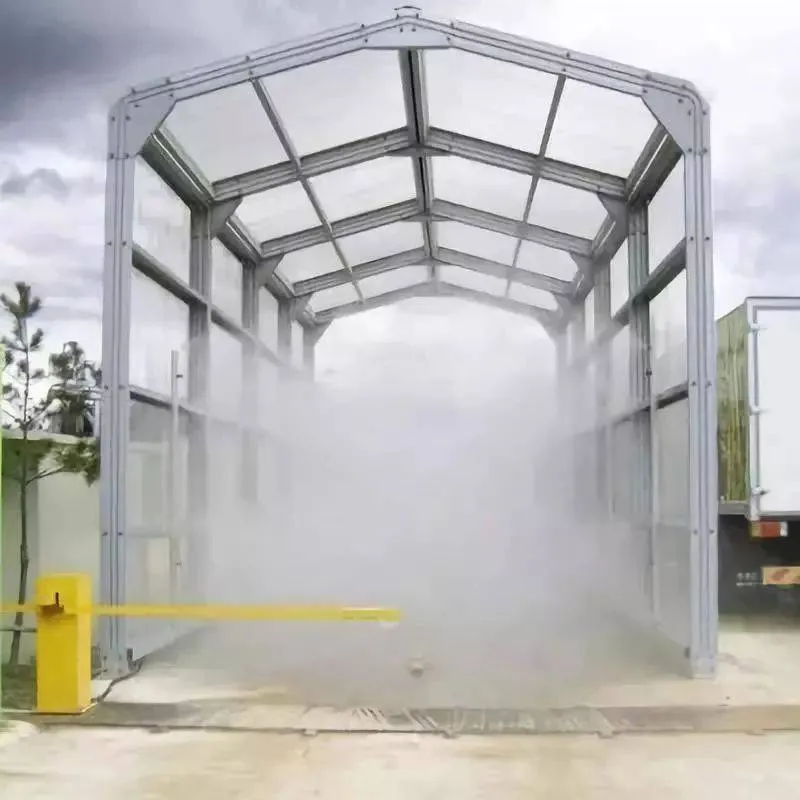
Vehicle Disinfection at Farm Entrances
In 2013, Ni Li et al. from China Agricultural University studied the comparative effectiveness of hypochlorous acid and compound phenol spray disinfection for vehicle disinfection. The study found that hypochlorous acid with an effective chlorine concentration of 80 mg/L was as effective as compound phenol with an effective ingredient concentration of 1367 mg/L for spray disinfection of vehicle surfaces entering the farm. Hypochlorous acid water has a strong bactericidal effect, is less corrosive, and has low disinfection costs. Using hypochlorous acid water for spray disinfection of vehicles entering the site is an important measure to effectively reduce the biosafety threat posed by pathogens carried by transport vehicles.
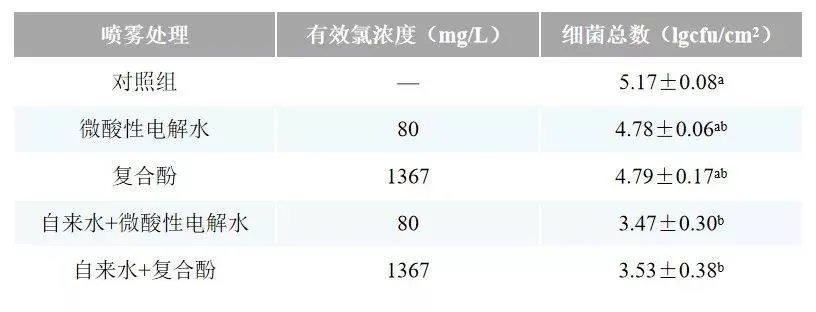
Effects of Hypochlorous Acid and Compound Phenol on Vehicle Spray Disinfection
Personnel Disinfection
Personnel entering the farm must change their boots at the entrance and disinfect them in the disinfection tank. A disinfection room is located at the entrance to the production area. Personnel must shower and change clothes in the disinfection room, then wear disinfected work clothes, hats, and boots before entering the production area.
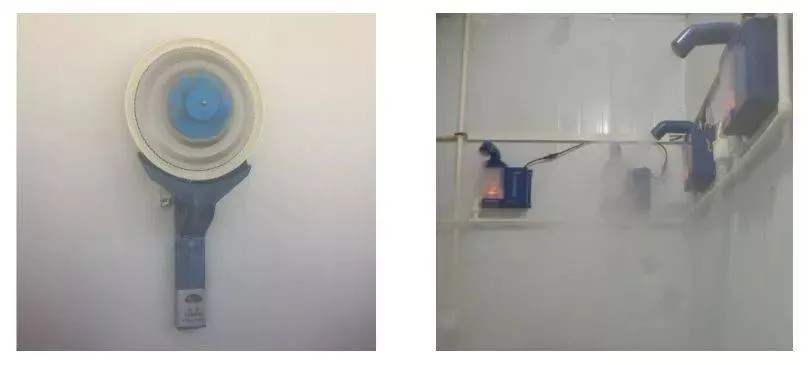
Hypochlorous acid water for disinfection of personnel passageways
Zang Yitian et al. studied the disinfection effect of hypochlorous acid water on surfaces of objects and clothing within personnel disinfection passageways. The results showed that when the concentration of Salmonella Enteritidis on clothing was 5.36 log10 CFU cm-2, ultrasonic atomization of 100 mg/L-1 hypochlorous acid water for 4 minutes achieved a sterilization rate of 99.35%.
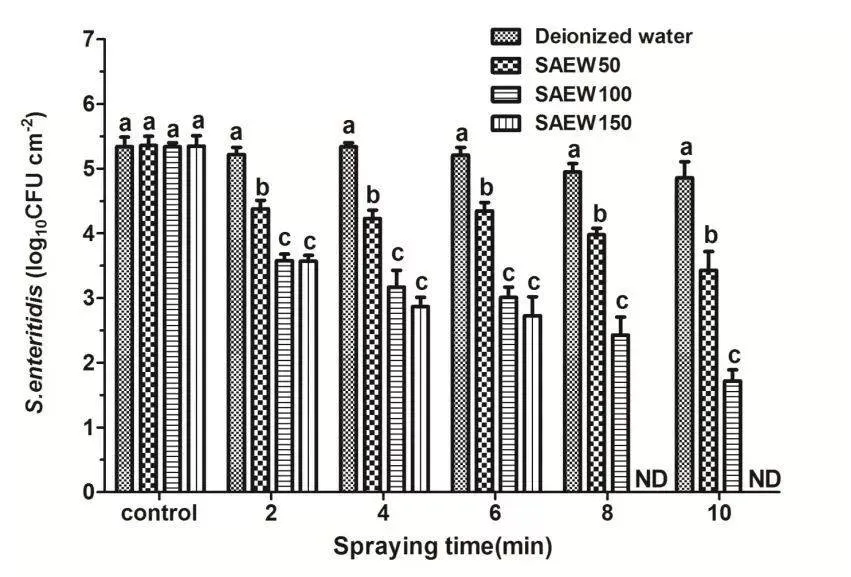
Disinfection and Deodorization of Livestock and Poultry Barns
Harmful gases produced during animal husbandry not only affect air quality within the barns but also degrade air quality in the farm and surrounding areas, posing a health risk to frontline livestock workers.
In 2017, Wuxi Xunlang Company conducted a trial using hypochlorous acid water for air disinfection and deodorization in piggeries at a farm in Jiangsu Province. The results are as follows:
Research shows that using an effective chlorine concentration of 116 ± 5 Spraying with hypochlorous acid water (approximately 100 L for approximately 15 minutes) at a concentration of 0.1 mg/L effectively reduced ammonia levels in piggeries, with a reduction rate of 52.27%. Hypochlorous acid water was significantly more effective at removing ammonia than tap water. Even after 3.5 hours of spraying, ammonia levels in the piggeries had not reached their initial concentration.
At the same time, hypochlorous acid spraying effectively reduced the total bacterial count in the air within the pig house, significantly surpassing the control group, with a reduction rate of 71.24%. After 3.5 hours of spraying, the total bacterial count in the air within the pig house was lower than the initial count.
Drinking Water Line Disinfection
Hypochlorous acid can significantly kill pathogenic microorganisms such as Escherichia coli in drinking water. Wang Yang et al. studied the effect of adding hypochlorous acid (0.3 mg/L) to drinking water systems in large-scale chicken farms. They found that adding hypochlorous acid to drinking water significantly reduced the total bacterial count in the water, demonstrating a significant bactericidal effect.
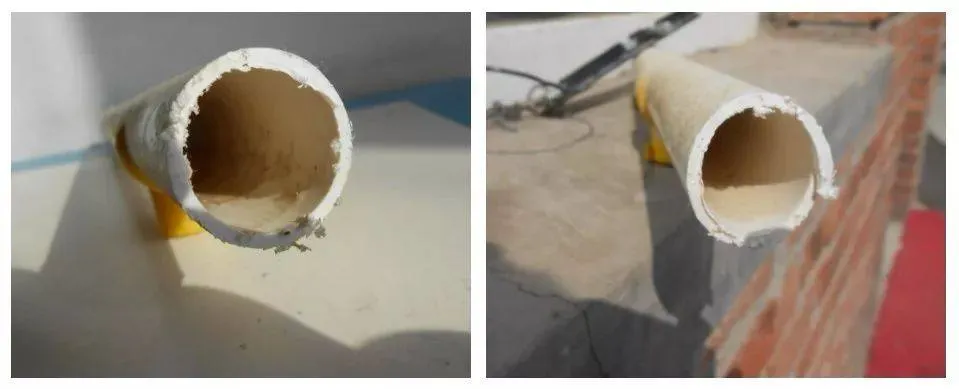
Comparison of Hypochlorous Acid Water for Drinking Water Pipeline Disinfection
Summary
Hypochlorous acid water has high sterilization efficiency, leaves no residue, is pollution-free, and is easy to use and operate, which indicates its promising prospects in the aquaculture industry.
Research on the application of hypochlorous acid water in the livestock industry is opening up a new approach to livestock disease prevention and efficient, healthy farming from a fresh perspective. The success of this research has groundbreaking significance for the development of sustainable agriculture and the protection of the ecological environment, with significant social and economic benefits and broad application prospects.
The Chlory hypochlorous acid generator uses electrolysis technology to generate a stable concentration of hypochlorous acid solution on-site, solving the problem of hypochlorous acid storage difficulties. Users simply electrolyze salt and water to produce disinfectant on demand, with controllable concentration, low cost, and ready-to-use. Widely exported to Jordan, Egypt, Ethiopia, etc.
